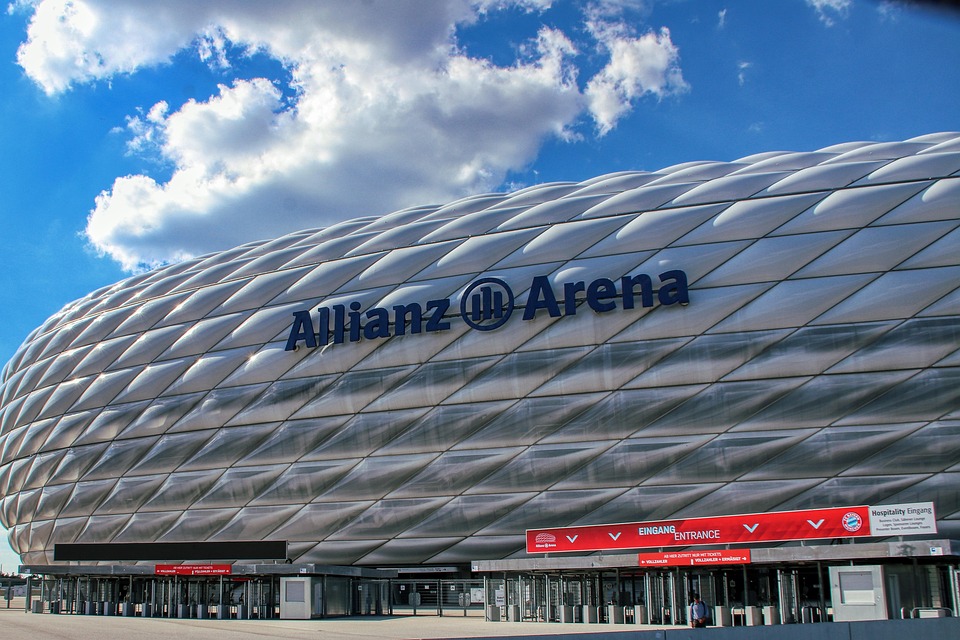As we move further into the 21st century, arenas—those colossal structures that house everything from sports and concerts to community events—are evolving rapidly. With advancements in technology, shifts in social behavior, and an increasing focus on sustainability, the next decade will no doubt bring transformative changes to these venues. This article explores some key predictions for the future of the arena.
1. Smart Arenas Powered by Technology
In the next decade, we can expect arenas to become "smart" facilities, equipped with advanced technologies that enhance the fan experience. From augmented reality (AR) to artificial intelligence (AI), these technologies will allow attendees to enjoy immersive experiences. Imagine using AR to get real-time stats or player bios on your mobile device while watching a game.
AI will streamline operations, from predictive analysis for crowd management to personalized marketing based on user behavior. Voice-activated assistants may guide guests to their seats or help them find the nearest restroom, creating a more seamless experience.
2. Sustainability at the Forefront
As awareness of climate change grows, sustainability will be a critical factor in the design and operation of future arenas. Expect to see a surge in eco-friendly constructions, incorporating renewable energy sources like solar panels and wind turbines.
Many arenas will adopt zero-waste policies, minimizing single-use plastics and implementing comprehensive recycling programs. Additionally, innovative water management systems will be essential for reducing water consumption. Event organizers will be more inclined to prioritize venues that demonstrate a commitment to environmental responsibility.
3. Enhanced Health and Safety Protocols
The COVID-19 pandemic has permanently changed how we view health and safety in public spaces. In the coming years, arenas will likely implement stricter health protocols, including contactless ticketing and advanced air filtration systems.
Technologies such as thermal imaging cameras may monitor temperatures at entry points, ensuring a safe and secure environment for fans. Moreover, flexible seating arrangements will allow for better social distancing when necessary, altering the traditional layout of arenas.
4. The Rise of e-Sports Arenas
As e-sports gain popularity, the arena landscape will transform to accommodate this booming industry. Dedicated e-sports arenas will emerge, featuring advanced gaming setups, high-speed internet connections, and live spectatorship similar to traditional sports events.
These arenas will not only host large-scale tournaments but will also serve as community hubs for gamers to connect, share experiences, and engage in friendly competition. Traditional sports will continue to coexist with e-sports, leading to hybrid events that blur the lines between the two.
5. Multisensory Experiences
The future arena experience will also focus on multisensory engagement. Fans will expect more than just a visual spectacle; they will seek an immersive experience that appeals to all their senses. This might include synchronized soundscapes, scent marketing, and tactile interactions through the use of innovative materials.
In-game entertainment will extend beyond the field, with interactive zones where fans can participate in activities or simulations related to the event. As a result, attendance will feel less like a passive experience and more like an engaging journey.
6. Community-Centric Design
Arenas are not just venues; they serve as community focal points. In the next decade, we will likely see more emphasis on designing these spaces with the community in mind. This could manifest in the creation of multipurpose arenas that can host a variety of events, from concerts to job fairs and community meetings.
Moreover, community input will play a significant role in the design process. Local stakeholders will increasingly be consulted to ensure that the arena meets the specific needs and desires of the population it serves.
7. Democratizing Access
Technology will also serve to democratize access to events in the coming years. Virtual reality (VR) and live-streaming capabilities will make it possible for fans to attend events from the comfort of their homes.
Additionally, ticketing systems will evolve to ensure that all fans have a fair shot at attending events, with features like dynamic pricing and lottery systems designed to reduce scalping and ensure equitable access.
Conclusion
The future of the arena promises to be as dynamic and transformative as the entertainment it hosts. Technological innovations will redefine the fan experience while sustainability, health and safety, and community engagement take center stage. As arenas adapt to these changes, they will not only serve as venues for entertainment but will also become integral parts of the communities they inhabit. The next decade holds exciting possibilities for both arena operators and the fans who love them.


